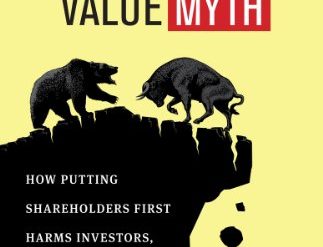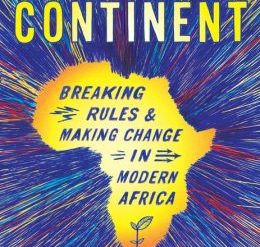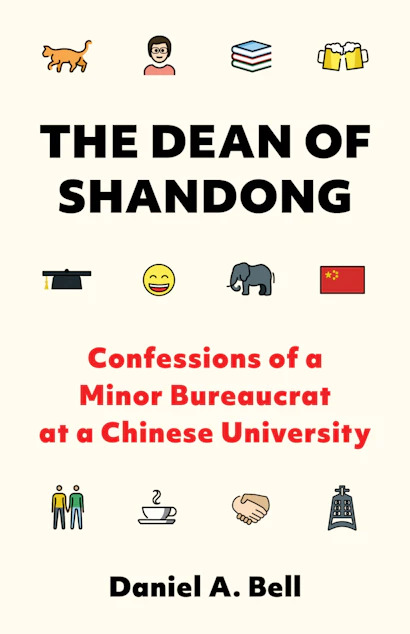
Ask just about any American at random to describe the Chinese political system, and the answer is likely to be “Communism.” It’s a convenient label that results from Mao Zedong’s 1949 revolution and seven decades of reporting by and about the Chinese Communist Party. Not to mention decades of over-simplified and often antagonistic Western media coverage. But the governing system in China today bears few traces of the creed of Karl Marx and Friedrich Engels, who were, after all, Westerners. And that’s largely the result of the shift engineered more than forty years ago by Deng Xiaoping, which brought Confucianism to the fore. This philosophy, little understood in the West, is the focus of Daniel Bell’s illuminating analysis of the Chinese political system today in The Dean of Shandong: Confessions of a Minor Bureaucrat at a Chinese University.
Estimated reading time: 8 minutes
A unique perspective on the Chinese political system
In reading any nonfiction book, it’s always important to understand an author’s sources and perspective, and that’s doubly true with this book. So, I’ll quote in entirety the first four sentences. “I am not now nor at any time have ever been a member of the Chinese Communist Party (CCP),” Bell writes. “Yet I serve as dean of a large faculty of political science in a Chinese university that trains students and provincial cadres to serve the country as Communist Party officials. It’s typically a post reserved for members of the CCP, given the political sensitivity of the work.
“That’s part of the surprise. The other part is that I’m a Canadian citizen, born and bred in Montreal, without any Chinese ancestry.” Bell goes on: “I was appointed dean not because of a commitment to China’s official Marxist ideology but rather because of my scholarly work on Confucianism.” And the author’s emphasis on that ancient philosophy dominates his account of the five years he spent at Shandong University. In fact, at times the book reads like a primer on Confucianism. And it’s no accident that Bell’s job was located in Shandong Province. It’s the birthplace of Kongzi (the Pinyin transliteration for Confucius) and his leading disciples.
The Dean of Shandong: Confessions of a Minor Bureaucrat at a Chinese University by Daniel A. Bell (2023) 208 pages ★★★★☆
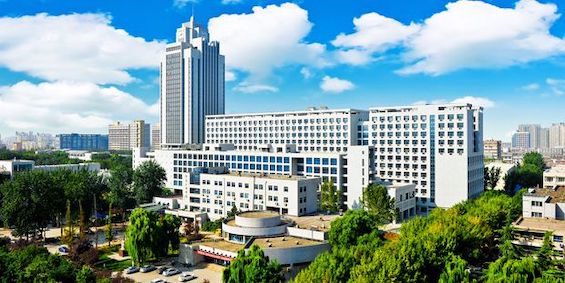
An insider’s view of China’s political system
Bell emphasizes two aspects of Chinese politics that rarely seem to surface in Western reporting on the country: “collective leadership,” and the influence of Confucianism.
The anti-corruption campaign
China’s current maximum leader, Xi Jinping, has recently emerged as “more equal” than the others in the seven-member Politburo Standing Committee. His power, it’s said, now approaches the level exercised by Mao Zedong. But that shift came about, Bell asserts, only because the extent of corruption within the CCP had begun to threaten the primacy of the Party. Before Xi, “Each top leader was an equal, in charge of a policy area, and each leader had de facto veto power over decisions that affected his constituency’s vested interests. It was impossible to attack vested interests that blocked necessary reforms.”
That changed in 2012. The leadership assented to Xi’s drive for power to launch, for the first time, a genuine anti-corruption campaign. And that campaign felled “more than one million officials,” including some at the pinnacle of power. “President Xi carried out the longest and most sustained anti-corruption drive in CCP history,” Bell notes, “and took on economic interests that blocked measures to clean up the environment and redistribute wealth from the rich to the poor.” In fact, the author explains, the campaign was so thorough and far-reaching that even at the lowest levels new bureaucratic rules complicated his life. For example, he was unable to take visiting scholars out to the long alcohol-fueled lunches that had long been customary. Such lunches were now strictly budgeted. And he was required to itemize every single item he did order at lunch.
Collective leadership persists
Xi’s preeminent position notwithstanding, “the other mechanism meant to limit arbitrary dictatorship at the top—collective leadership—continues to be in place,” Bell insists. “Collective leadership has changed over the years . . . but the system still provides an important check on arbitrary decision-making by Numero Uno. If President Xi were to go senile, for example, we can expect that he’d be removed from the Standing Committee of the Politburo.”
But there is a distinct downside to the success of the anti-corruption drive. “If the corrupt official was the bane of the Chinese public before the anti-corruption campaign, today it’s the do-nothing official who blindly sticks to the rules and cares for nothing other than pleasing higher-ups. Equally serious, the anti-corruption drive has created huge numbers of political enemies who may be rooting for the downfall of the leaders, if not the whole political system. . . These real enemies make the leaders even more paranoid than usual and lead the government to ramp up censorship and further curb civil and political rights.” Although Western media offers extensive coverage on the increasing suppression of civil liberties in China, it’s rare to find any reason in its reports for why the CCP is taking such draconian action.
Confucianism vs. Marxism-Leninism
Bell notes in passing that his five-year term as a dean at Shandong University was only a late chapter in his experience in China. In fact, he had previously taught political theory for fifteen years elsewhere in the country, chiefly at China’s most prestigious institution of higher learning, Tsinghua University in Beijing. And after this book was published he accepted a new job as Chair of Political Theory at the University of Hong Kong Faculty of Law.
The emphasis in Bell’s teaching reflects his life-long study of Confucianism. According to a widely accepted definition, that 2,500-year-old philosophy “is concerned with inner virtue, morality, and respect for the community and its values.” Traditionally, Confucian thought has emphasized filial piety and, extending outward from the family, deference to the ever-larger hierarchy of group settings that constitute a civilization. And this approach led early in China’s history to the system of grueling examinations used to select imperial officials. Today, a similar emphasis expresses itself in “Chinese-style meritocracy—an ideal that (highly imperfectly) informs the political reality.” Bell characterizes it as “the only viable alternative to liberal democracy in the modern world.”
In effect, the Chinese political system today reflects a balancing act between Confucianism and Marxism-Leninism. At the moment, if reports in our media can be believed, the balance is shifting back toward the latter. But, Bell insists, the Confucian emphasis on meritocracy and virtue remains a powerful influence on the actions of officials in the upper reaches of the Party and the state.
War with China?
Few Americans today fear anything in world affairs more than the prospect of war with China. And Bell addresses that question squarely. “The idea that China would seek to go to war against the United States anywhere near its territory is crazy,” Bell insists. He notes parenthetically, though, that “China is surrounded by U.S. military bases, and it’s not absurd for Chinese policy makers to worry that the United States and its allies might launch a war against China.” But I’m not convinced. Other credible sources point to the seesawing debates among China’s top leadership between what we in the West call “hawks and doves.” And there are times when the hawks are in the ascendancy. In fact, it appears that now, in 2023, that may well be the case. The saber-rattling over Taiwan is worrisome.
About the author
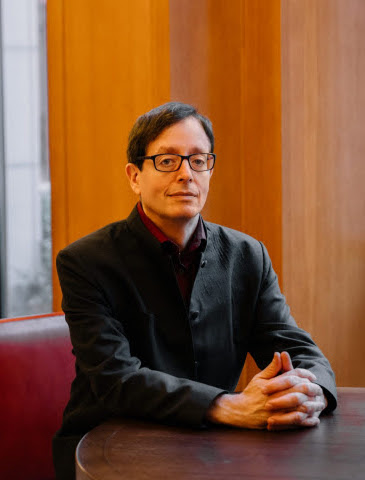
Daniel A. Bell (1964-) is a Canadian political theorist and scholar of Confucianism. According to Wikipedia, he is currently Chair of Political Theory at the University of Hong Kong Faculty of Law. He was Dean of the School of Political Science and Public Administration at Shandong University between 2017 and 2022 and professor at Tsinghua University. Together, he has spent a total of twenty years at these posts in China.
Bell was born in Montreal in 1964 and educated at Canada’s McGill University and the University of Oxford. He is the author of at least eight books and has translated three others by Chinese scholars. He is also the co-editor of six other books. Bell’s author website adds that “[h]is works have been translated in 23 languages. In 2018, he was awarded the Huilin Prize and was honored as a ‘Cultural Leader’ by the World Economic Forum. In 2019 he was awarded the Special Book Award of China.”
For related reading
See Party of One: The Rise of Xi Jinping and China’s Superpower Future by Chun Han Wong (An insightful biography of Xi Jinping). And check out two other books that offer in-depth examination of Chinese politics:
- Overreach: How China Derailed its Peaceful Rise by Susan L. Shirk (Why the US and China are at odds)
- Sparks: China’s Underground Historians and their Battle for the Future by Ian Johnson (Digging out the truth about Mao Zedong)
You’ll find additional perspective at:
- 30 insightful books about China
- Top 10 nonfiction books about politics
- Gaining a global perspective on the world around us
And you can always find my most popular reviews, and the most recent ones, on the Home Page.


